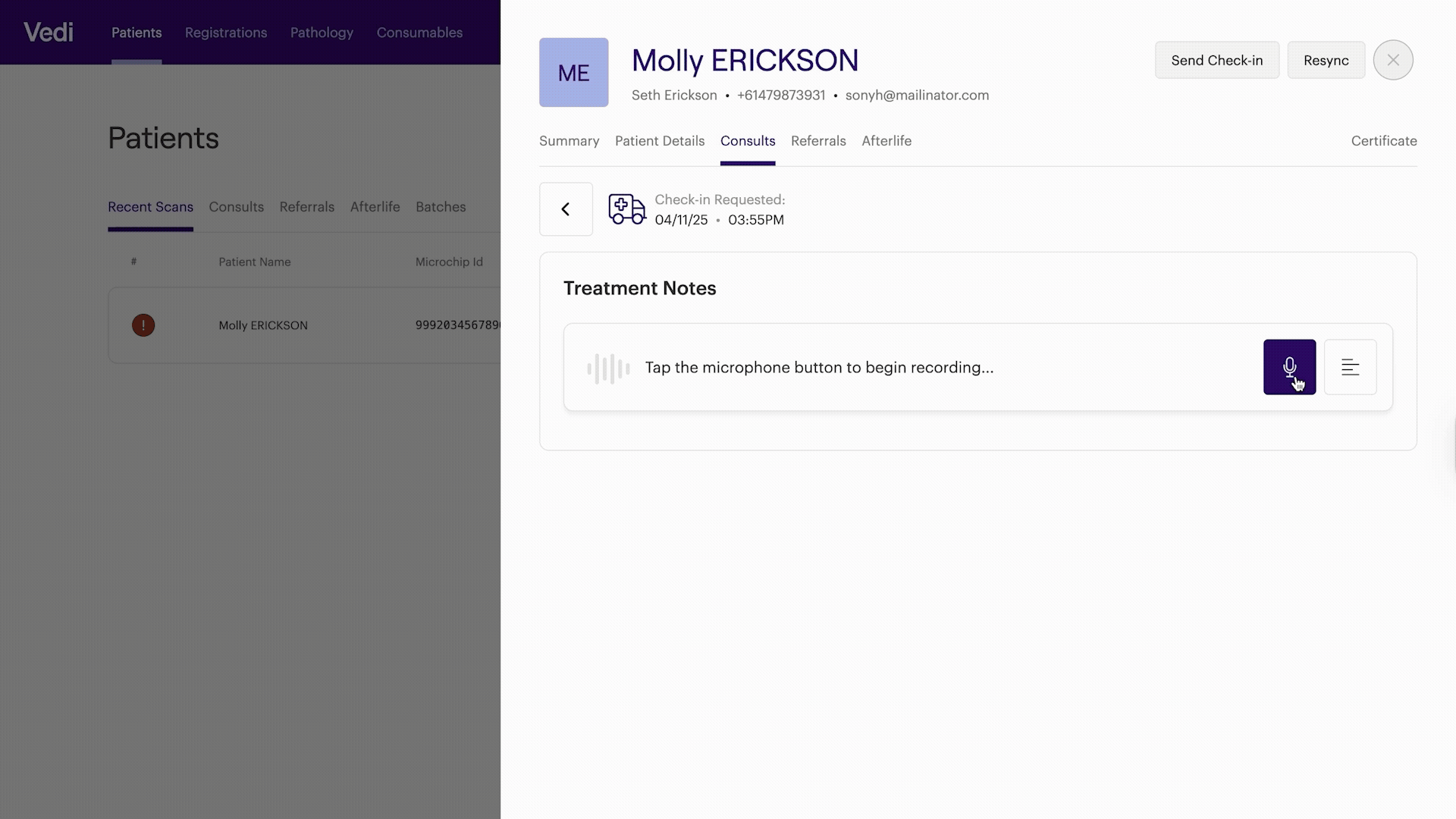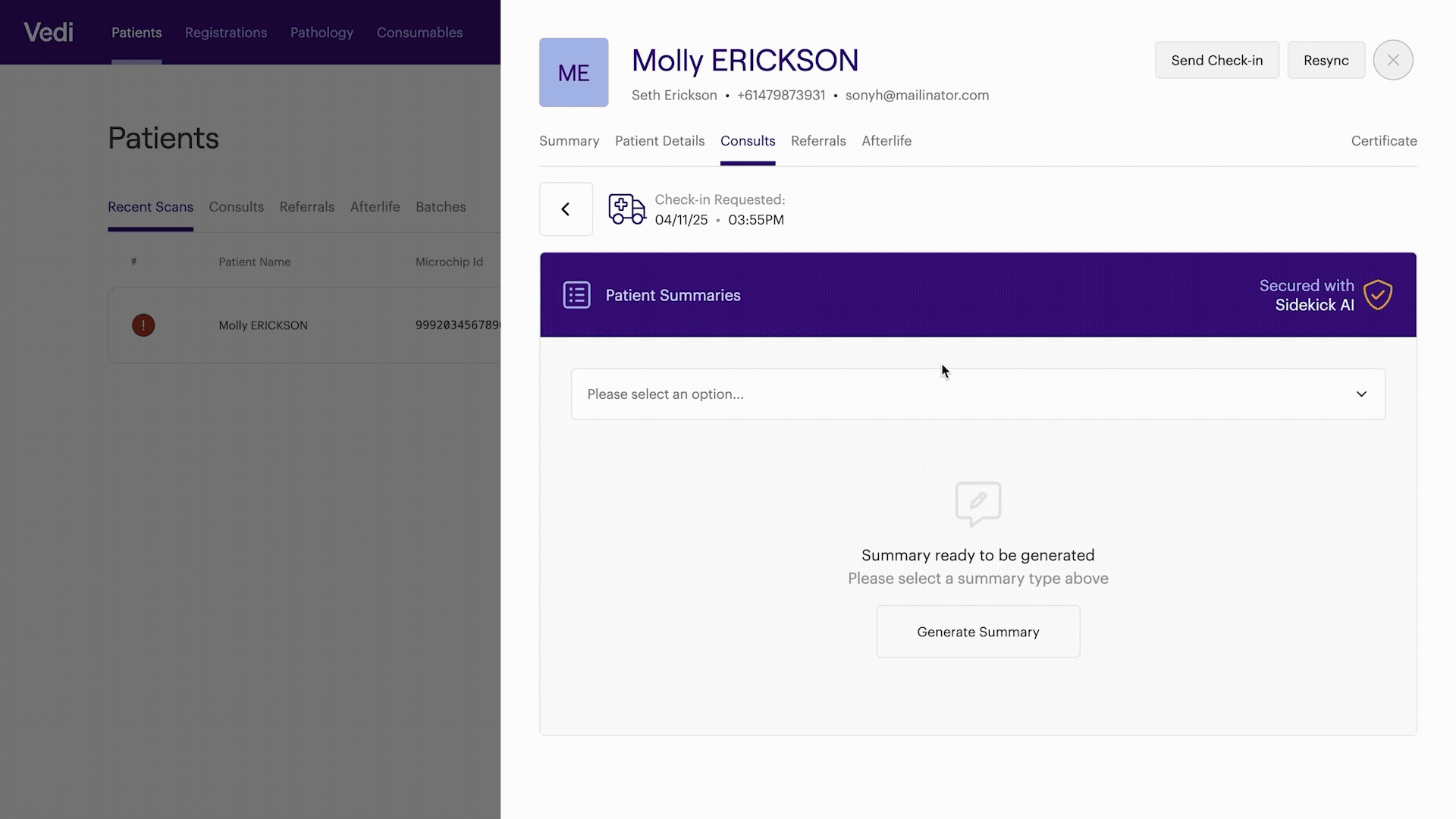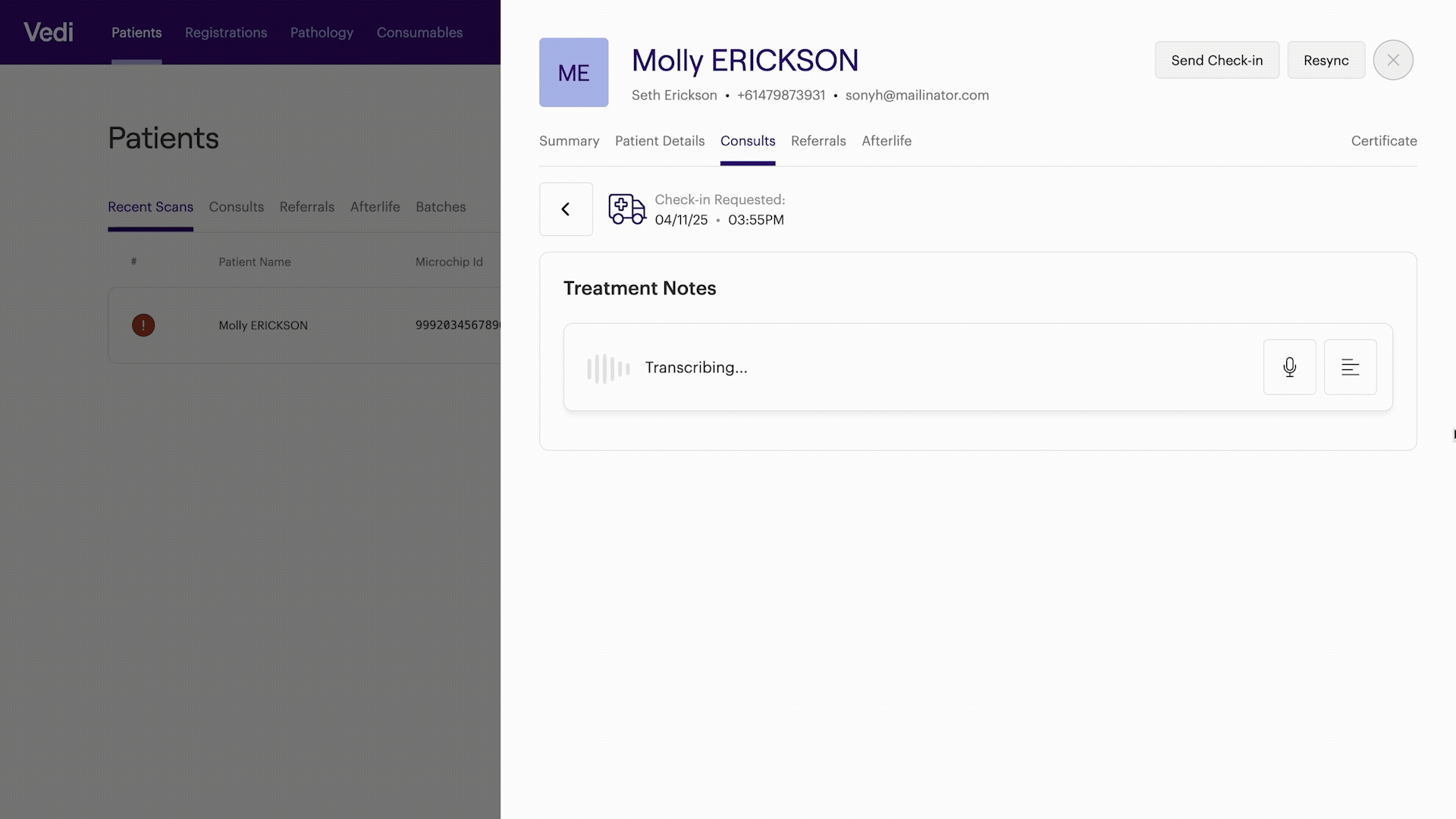
- Why Vedi?The cloud health platform, locked to the pet's microchip.
Smart modules.
Sidekick AInew - About
Get to know us.
Resources
- Pricing
- Contact

As AI rapidly becomes a regular fixture in clinic workflows, we know you probably have questions and concerns around how it impacts your veterinary clinic's data security and compliance.
We’ve designed our Sidekick AI transcription tool to enhance accuracy, transparency, and accountability as much as possible, so we've broken it down here to give you a full picture of what to expect when you use Vedi.

Most AI scribes merge your spoken notes directly into a generated summary, overwriting the original transcription in the process. While that may seem efficient, it removes the source of truth and blurs the line between what you said and what the AI interpreted.
Vedi takes a different approach.
We keep both the original transcription and the AI-generated summary as separate, linked records. That means:
Our AI summaries simply build on top of your consult notes, helping you get quick insights while keeping the clinical record whole.
Every veterinary consult is a legal and medical record. If your AI tool overwrites or merges data, it becomes difficult to verify what was said, when, and by whom.
With Vedi, the chain of truth is never broken. You can always return to the original voice-to-text transcription if you ever need to go back to it.
That way, you’ll always have the complete clinical story, no matter what the AI-generated summary produces.
Here’s how we safeguard the integrity and privacy of every record:
Read more about how we handle data security and protection in our Trust Centre.

The transcription tool is available to all Vedi users on our $99 per month subscription plan, offering unlimited users, unlimited records and unlimited AI summaries.
Anyone with a Vedi account can record, edit, or contribute to a patient’s notes.
While vets will likely use Sidekick AI the most, vet nurses and front-of-house staff will also benefit. They can make notes and updates about the patients too, and send the summaries to pet parents, referral specialists or manage client care between colleagues.
Your consult notes are private and only available to your clinic team.
Vedi-connected providers, like referral specialists, emergency hospitals, or labs, cannot view your internal notes.
Here’s how access works:
You stay in control of what’s shared, when, and with whom.
Every time a pet patient receives care through a Vedi-connected clinic or hospital, their health record is updated and linked to their microchip ID. Wherever the pet goes, their health data goes with them. This means that vets don't need to rely on pet parents to remember treatments or carry certificates (which can lead to delays, inaccuracies or missed care opportunities).
Additionally, in an industry plagued by data silos, Vedi is redefining how all service providers interact with each other using a single source of truth. Through Vedi, GPs, emergency vets, pathology labs, breeders, and owners could all interact with the same live record. That network effect is transformative, unlocking new insights and better care.
Ultimately, with AI becoming an integral part of everyday workflows, we can harness it to provide valuable context, gained from a network, like the one we're building at Vedi, that connects all stakeholders through a shared health record.
Imagine AI not just recording today’s consultation, but pulling in a pet’s previous medical history, medications, pathology results, or even what happened at an emergency visit last year. That’s when AI shifts from being an admin helper to becoming integral to decision-making, helping vets make more informed calls, reducing unnecessary costs, and giving owners peace of mind that nothing is missed.
That’s what sets Vedi apart. Underpinning this is our secure data infrastructure and commitment to ensuring that every note, every summary, and every decision is supported by complete, secure, and verifiable data.
Only pay for what you use, no lock-in contracts, cancel anytime.